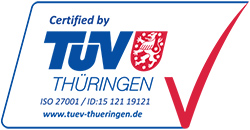Check .lt domain
Survey: 41% of women's surnames on Facebook are spelled incorrectly, and 93% of .lt domains are also spelled incorrectly
The Lithuanian Computer Society (LIKS) has conducted a survey to determine whether women in open Lithuanian and Icelandic Facebook discussion groups spell their surnames correctly, i.e. using unique letters. The results revealed that only 59% of Lithuanian women spelled their surname correctly on social network sites, while the rest used incorrect spelling with Latin letters without diacritics. Icelandic women were much more active in using unique letters of their language in their surnames, with 90% of Icelandic surnames spelled correctly.
A similar survey on the surnames of female Skype users was carried out in 2006 at the initiative of Researcher dr. Gintautas Grigas and Computer Science Teacher Sigita Pedzevičienė. According to the data of this survey, only 20% of Lithuanian and 80% of Icelandic women spelled their surnames correctly in the Skype app.
Lithuanian surnames are unique
Lithuanian women can be proud of their unique surnames distinguished among many other nations, but they do not appreciate this linguistic gift. This is the opinion of dr. G. Grigas, Honorary Head of the Localisation Section at the Lithuanian Computer Society, Researcher of the Institute of Data Science and Digital Technologies at Vilnius University, who researches localisation issues.

“When we see a surname ending in -aitė, -ytė, -iūtė, -ienė, we can tell that its owner is Lithuanian. Icelandic surnames are also unique. They end in -dóttir, which is Icelandic for daughter. The ending of the surname is preceded by the name of its owner’s father. For example, the surname Sigurdsdóttir means that the owner is the daughter of Sigurds.
The uniqueness of surnames in both languages is further enhanced by the fact that their endings contain the distinctive letters of their respective languages ė, ū and ó. Especially the Lithuanian ė, which is absent in other languages.
However, there is one but: many women spoil this gift by substituting the unique letters with diacritics with similar letters without diacritics. Icelanders write dottir instead of dóttir, Lithuanians write aite instead of aitė, yte instead of ytė and so on,” assures dr. G. Grigas.
How many Lithuanian and Icelandic women use incorrect spelling?
To find out the extent of Lithuanian and Icelandic women’s incorrect spelling, five popular open Lithuanian and Icelandic Facebook discussion groups were selected for analysis. The results of the selection of female surnames based on suffixes indicated that 59% of Lithuanians and 90% of Icelanders spelled their surnames correctly.
According to dr. G. Grigas, the spelling varied in individual Lithuanian groups, ranging between 53% and 69%. In the Icelandic groups, it was almost the same, ranging only between 90% and 91%.
“When analysing the Icelandic groups, we managed to find an interesting fact - 12 Lithuanian surnames. 7 of them were spelled correctly. This number is not statistically representative, but it reflects the trend. A more rounded estimate would be that 6 out of 10 Lithuanian women and 9 out of 10 Icelandic women spell their surnames correctly.
If we compare these figures with the results of the 2006 Skype survey on women’s surnames, the number of Lithuanian women who spell their surnames incorrectly has dropped from 80% to 40% in 16 years, while the number of Icelanders has dropped from 20% to 10%. Thus, half as many in both nations. However, the gap between Icelandic and Lithuanian women has remained the same. This is probably not the fault of the Lithuanian women, but instead, the slow-moving Lithuanian people, who did not sort out the Lithuanian characters in their computers in time causing complications with character encoding until 2000, and we still don’t have computers with physical Lithuanian keyboards,” says dr. G. Grigas with irony.
Domain names are also spelled incorrectly
The Internet Service Centre DOMREG at Kaunas University of Technology (KTU), which is the registry of the Lithuanian national .lt domain, has conducted a survey of .lt domain names to determine how many domain holders are using the incorrect spelling.
The analysis of .lt domain names revealed that only 7% or 2 000 out of 28 000 registered .lt domain names that could potentially have equivalents with unique Lithuanian letters are written using the letters of the Lithuanian alphabet ė, ą, ę, į, ų, ū, č, š, ž. The remaining 93% of the registered .lt domain names use incorrect spelling, i.e., they are written without the diacritics – dot, macron, subscript curl or curve.

“Such high level of incorrect spelling in domain names can be attributed to the habit of using the incorrect spelling that developed when it was not yet possible to use specific Lithuanian letters in .lt domain names. The possibility to create domain names with diacritics of national languages was provided when the organisation developing the internet standards IEFT approved the technical documentation of the IDN (Internationalized Domain Name) for encoding and depiction of the unique national letters. Although we introduced the IDN in 2004, the users got used to the habit of incorrect spelling before it was technically possible to use the unique Lithuanian letters, and have not abandoned this habit until now.
Another reason why, even 19 years after the beginning of the IDN domain registration, incorrect spelling prevails is that other technical problems remain unresolved. Unfortunately, the most popular social network Facebook still does not properly display the links to websites using IDN domains. The possibilities of using an email address with IDN domains are also very limited,” explains Tomas Mackus, Head of KTU Internet Services Centre DOMREG.
According to him, even with certain limitations, the IDN domains should be created simultaneously with their incorrectly spelled equivalents to provide better protection for the name, avoiding confusion and disputes due to the misleading similarity of domain names held by another person just because of the similar spelling. Having both options of the domain name, the visitors can be directed to one of them without losing traffic when the visitors write either version of the address. When the incorrectly spelled name of the website is given while speaking on the telephone or advertised on the radio, it sounds unnatural; therefore, an IDN domain would help to avoid such problems and brands in public communication would be decorated with the correct Lithuanian language.
Published 2023-03-09



